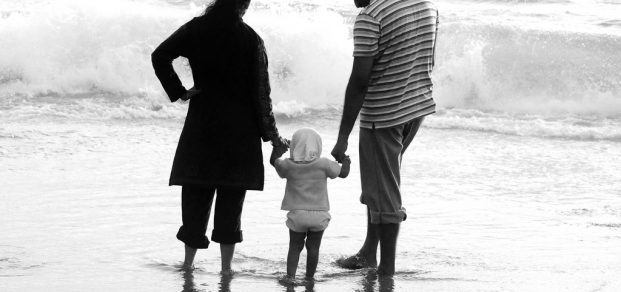Introduction
The term ‘perinatal’ refers to the period before and after childbirth, usually defined as the time of pregnancy up to and including one year after giving birth. Physiological and emotional changes of pregnancy, labour and caring for a newborn baby can make this a vulnerable time for new mothers and fathers.
What we already know
Up to 20% of women develop a mental health problem during pregnancy or within a year of giving birth (Bauer et al. 2014). Depression is the most prevalent mental illness in the perinatal period, with around 10 to 14% of mothers affected during pregnancy or after the birth of a baby. Around 3% of new mothers are estimated to suffer with Obsessive Compulsive Disorder. Postpartum psychosis (also known as puerperal psychosis) affects around 2 in 1000 new mothers. Unlike milder forms of depression and anxiety, this severe condition is more likely to occur after childbirth and most cases are within the first few weeks of the baby being born (Hogg 2014).
Fathers also experience mental health difficulties during the perinatal period, although we know a lot less about this because the research is much thinner on the ground. Depression and anxiety are common in fathers during the perinatal period. We know that about 5-10% of men experience clinical depression during this period (Paulson et al, 2010), and 5-15% are affected by anxiety disorders (Leach et al, 2016).
The issue of perinatal mental illness is important not only because of the effect on the mother’s health, but the effects on the child’s health may impact on their emotional, cognitive and even physical development.
- One case of perinatal depression around £74,000
- One case of perinatal anxiety around £35,000
- One case of perinatal psychosis around £53,000
Note that these are estimated costs to society and not costs to the public sector directly. This report was discussed in further detail here.
Mental illness is also one of the leading causes of death in women in the perinatal period.
Areas of uncertainty
It is estimated that half of the cases of perinatal depression and anxiety in the UK are not identified, so there is uncertainty over how to improve detection rates, as well as interventions for when high risk women are identified .
What’s in the pipeline
For those women living in the UK, access to perinatal mental health services can be a postcode lottery. Women in around half the UK have no access to specialist perinatal mental health services and it is hoped that these limited services will expand. It is also hoped that all frontline healthcare workers coming into contact with this group of women will have specific training on perinatal mental illness (including midwives, health visitors and GPs).
References
Bauer A, Parsonage M, Knapp M, Iemmi V, Adelaja B. (2014) Costs of Perinatal Mental Health Problems. London School of Economics and Political Science [PDF]
Paulson JF, Bazemore SD. (2010) Prenatal and postpartum depression in fathers and its association with maternal depression: a meta-analysis. J Am Med Assoc. 2010;303(19):1961–9.
Leach LS, Poyser C, Cooklin AR, Giallo R. (2016) Prevalence and course of anxiety disorders (and symptom levels) in men across the perinatal period: a systematic review. J Affect Disord. 2016;190:675–86. [PubMed abstract]
Hogg S. (2014) Prevention in Mind. All Babies Count: Spotlight on Perinatal Mental Health. NSPCC [PDF]
Photo Credits
Acknowledgement
Written by: Josephine Neale
Reviewed by: Ellen Grimas
Last updated: Mar 2017
Review due: Sep 2017










